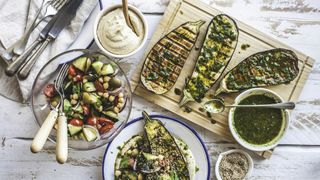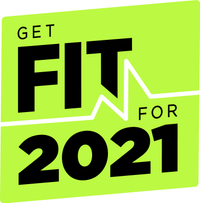Brain power foods: what to eat to be more productive and alert
We explain the link between diet and brain power - and how it can help you to get stuff done


It’s well know that food provides fuel for physical activity. We know that we’ll perform better on a long run or during a HIIT session if we’ve eaten a healthy meal that gives our bodies energy, instead of something unhealthy that leaves us feeling sluggish and bloated.
So it only makes sense that what we eat can fuel our mental activity too - which makes figuring out how to eat healthily as important for our brain as it is for our body.
Eating well can make you feel more alert and focused, whereas eating poorly will make you feel tired and foggy - with each scenario impacting your ability to perform in both your personal and professional life, either positively or negatively.
“Not eating enough nutrient-rich foods may mean that your diet is lacking certain vitamins and minerals that are important for the brain,” says Sarah Coe, nutrition scientist at the British Nutrition Foundation.
“You may experience low energy levels, tiredness, low mood, poor concentration levels, and an inability to focus.”
The Mediterranean Diet: high in brain-boosting foods
One of the biggest areas of research when it comes to brain-healthy foods is determining the connection between diet and cognitive decline in ageing.
The Mediterranean diet has long been touted as the exemplary diet for good heart health, weight loss, and even cancer reduction, but it also has proven benefits for the brain too.
Get the Fit&Well Newsletter
Start your week with achievable workout ideas, health tips and wellbeing advice in your inbox.
“Some research has shown that following a Mediterranean-style dietary pattern may be associated with a lower risk of mild cognitive impairment and dementias, including Alzheimer’s disease,” says Sarah.
One study found that a higher adherence to the Mediterranean diet showed slower rates of cognitive decline, reduced conversion to Alzheimer’s disease, and improved long-term and working memory. Another study even suggested that closely following the Mediterranean diet could reduce the brain’s age by five years.
Typical Mediterranean diets are centered around high amounts of fresh fruit, vegetables, legumes, whole grains, and fish. Plus, they contain unsaturated fats like olive oil, and feature low amounts of dairy and meat.

Conversely, diets in the US and the UK commonly feature high amounts of processed food, sugar, and saturated fats (such as butter, cakes, bacon, sausages, fatty cuts of meat). Consuming too much of these groups can lead to issues like blood sugar imbalances and diabetes, high blood pressure, and high cholesterol, which can consequently have negative impacts on the brain.
For example, it was found that high blood sugar levels in non-diabetic research participants lead to poor thinking and memory function in a cognitive test. Diabetes has also long been associated as a high-risk factor for dementia and Alzheimer’s disease. If these issues are a concern for you, read our guides on how to lower blood sugar levels and how to lower cholesterol.
Sarah suggests that a varied diet is key to getting all the nutrients we need for optimal brain health. As well as consuming a range of the brain-boosting foods and nutrients below, ensure you keep on top of your water intake because hydration is also important for brain function.
Brain power foods: Omega-3
There is a very clear link between omega-3 consumption and improved cognitive ability. Multiple studies have shown how important it is to include this group of fatty acids in our diets, suggesting a moderate amount can slow cognitive decline in ageing.
Omega-3 fatty acids are mainly found in oily fish like salmon, sardines, and mackerel. Other sources include walnuts, flaxseed and chia seeds
If you don’t like or can’t eat fish, taking a fish oil supplement (or an algae oil supplement if you’re vegan) is a good idea. Take a look at our list of the best fish oil supplements to get started.
Brain power foods: Carbohydrates
Carbohydrates are essential for providing the energy our brains need to function properly.
“You may experience some symptoms like poor concentration levels and an inability to focus if you don’t have enough glucose in the blood, which can happen when we don’t eat enough carbohydrate-containing food,” says Sarah.
“Wholegrain or higher fibre varieties of starchy foods will release energy more slowly, which include wholemeal bread, wholewheat pasta, brown rice, oats and wholegrain breakfast cereals.”
Other good carbohydrate sources include:
- Quinoa
- Legumes like chickpeas, kidney beans and black beans
- Sweet potatoes
- Bananas
Brain power foods: B vitamins
The group of eight B vitamins are essential for general health, but they also have a particular impact on brain health. A deficiency in B vitamins can lead to symptoms like fatigue, memory loss, depression, and anxiety.
Some research that has focused specifically on vitamins B12, B6, and B9 (commonly called folate) suggests that deficiencies in these can also lead to cognitive decline and dementia.
The range of B vitamins are found across:
- Wholegrains
- Leafy green vegetables like cabbage, kale, and spinach
- Mushrooms
- Avocados
- Bananas
- Legumes like chickpeas and kidney beans
- Meat
- Eggs
The only dietary sources of vitamin B12 are from meat and animal products, so if you’re vegetarian or vegan, speak to your doctor about supplementation.
Brain-boosting foods: Antioxidants
Antioxidants play an important role in our bodies by fighting harmful free radicals. Having an excess of free radicals in the body can lead to oxidative stress, which can lead to cell death. Some research suggests that prolonged oxidative stress in the brain could lead to cognitive decline.
Some lifestyle and environmental factors increase free radical production in the body. They include smoking, alcohol, processed foods and air pollution, so it’s important to mitigate or limit these as much as possible.
Including antioxidants in your diet is also important for brain health. Different vitamins and nutrients fall under the antioxidant category, including vitamins C and E, flavonoids, and curcumin (a compound found in turmeric).
Sources of vitamin C:
- Berries
- Citrus fruit
- Peppers
- Potatoes
Sources of vitamin E:
- Nuts
- Avocados
- Vegetable oils
Sources of flavonoids:
- Green tea
- Dark chocolate
- Red wine
- Blueberries
- Apples
For healthier ways to prepare everything from meat and fish to vegetables, check out our pick of the best health grills.
Get Fit for 2021 with Fit&Well
As the sun rises on a brand new year, Fit&Well is here to help put last year behind you and make 2021 your happiest, healthiest yet. Here at fitandwell.com, we’ll be bringing you a wealth of workouts, diet plans and expert advice throughout January to help kick-start your health and fitness goals.
Nupur is a freelance journalist who covers travel, lifestyle, health, fitness, and nutrition. She has previously written for titles including Stylist, Where London, London Planner, Vacations & Travel, and Hey Gents. A keen runner with a fondness for running tourism, she loves knocking back a few early morning miles whenever she visits somewhere new and has clocked up distances in the UK, Germany, Italy, Australia, Japan, and Vietnam. An avid believer in the idea of food as medicine, she can often be found researching new ingredients to include in nutritious plant-based meals. When she’s not doing any of the above, Nupur is usually curled up on the couch trying her hand at a new crochet project.
-
 Forget the gym—all you need are two dumbbells and five moves to build muscle all over at home
Forget the gym—all you need are two dumbbells and five moves to build muscle all over at homeWorkout Work all the main muscle groups in just 20 minutes with this dumbbell workout
By Lou Mudge Published
-
 I didn't realise how much walking 10,000 steps a day was benefitting my health until I stopped
I didn't realise how much walking 10,000 steps a day was benefitting my health until I stopped10,000 steps This is the one healthy habit I can't wait to get back to
By Alice Porter Published

